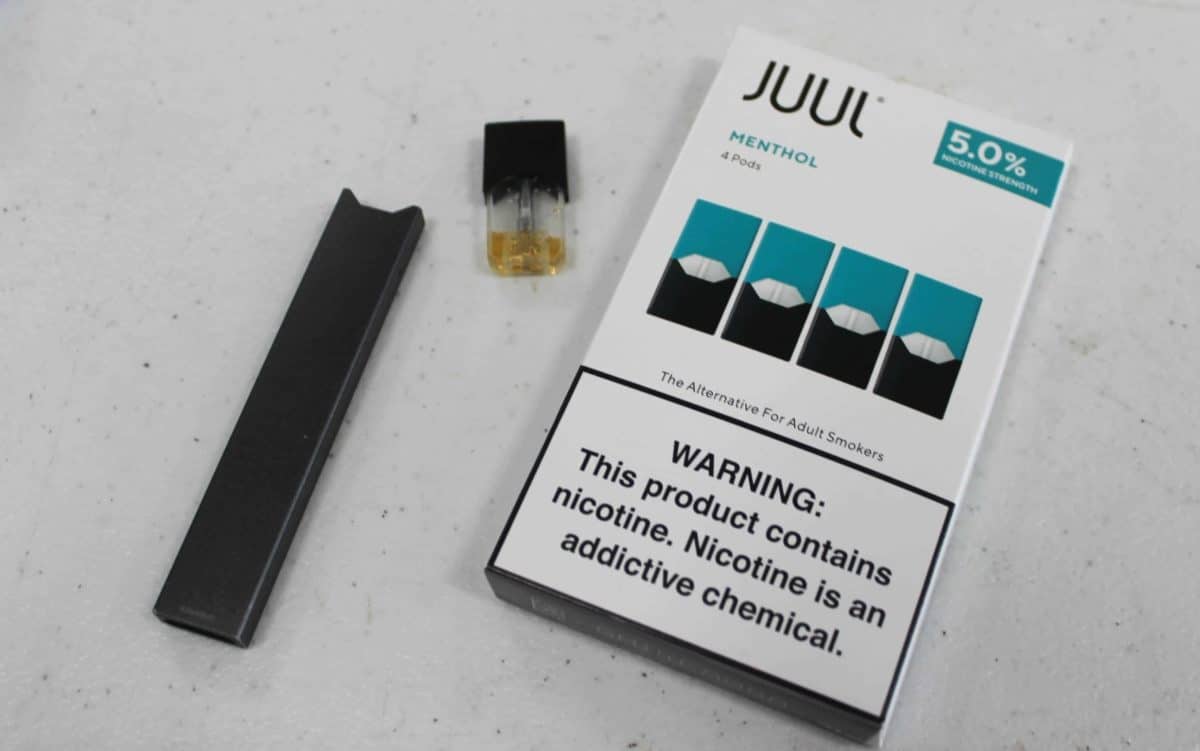

After a surge in vaping-related lung injuries across the country, North Carolina just reported its first-related vaping-related death in Greensboro. There have been 40 reported cases of vaping-related lung disease in the state. Meanwhile, the CDC is working on testing e-liquids to verify which substances are responsible. Many of the reported cases involve vaping THC products and/or counterfeit vape products, and the nationwide attention even resulted in the Trump administration proposing a ban on all flavored e-cigarettes.
These recent vaping-related illnesses, while the most severe of instances, show that an unregulated market of vape products is in fact a public health issue. The issue of youth vaping was already a significant public health focus after the Food and Drug Administration (FDA) declared an “epidemic” with 3.6 million youth reporting the use of e-cigarettes in the 2018 National Youth Tobacco Survey.
So whether you are a parent looking for more information, a teen looking to quit, a teacher looking for resources for your classroom, an administrator looking for an alternative-to-suspension program, or a public health official interested in other campaigns — below is a list of 28 resources related to vaping prevention. Special thanks to Carleen Crawford, regional tobacco manager of NC Health Region 4, for many of the recommendations provided here.
American Lung Association
The American Lung Association recently launched INDEPTH, an alternative-to-suspension or citation program “that helps schools and communities address the teen vaping problem in a more supportive way,” instead of focusing on punitive measures.
ASPIRE
ASPIRE is a bilingual, online tool that helps middle and high school teens learn about being tobacco-free. It explains the dangers of tobacco and nicotine use so that they never start smoking. Or, if they already do, it provides information and ways to quit.
Campaign for Tobacco-Free Kids
The Campaign for Tobacco-Free Kids promotes the adoption of proven solutions that are most effective at reducing tobacco use.
Catch My Breath
Catch My Breath collaborated with researchers at Michael & Susan Dell Center for Healthy Living at The University of Texas Health Science Center at Houston (UTHealth) School of Public Health to create CATCH My Breath, a youth e-cigarette and JUUL prevention program specific to grades five through 12.
CDC
The Centers for Disease Control and Prevention (CDC) is currently investigating the surge of vaping-related illness across the country. The CDC also regularly releases public health information related to e-cigarettes.
Center for Tobacco Regulatory Science and Lung Health (UNC)
TCORS works to “quickly and accurately assess the impact of new and emerging tobacco products on lung health,” including e-cigarettes.
FDA: Real Cost Campaign
The FDA’s Real Cost Campaign launched in 2014 to educate kids about the dangers of smoking cigarettes. Recently, the campaign has pushed e-cigarette prevention as well. Unique to the official campaign page is that it is intended for the campaign target audience only — youth ages 12-17.
Flavors Hook Kids
Flavors Hook Kids is an anti-vaping campaign by Tobacco Free California that also includes an informative YouTube video series.
EducationNC
For nearly a year, EducationNC has covered news related to youth vaping, from inside our state’s classrooms to hearings by Congress. For more of our coverage on youth vaping, click here.
Escape the Vape
Escape the Vape is an anti-vaping info site for youth from Seattle and King County (Washington State).
Escape the Vapes
Though carrying a very similar name to the prior entry, Escape the Vapes is an anti-vaping info program developed by the Cleveland County (NC) Substance Abuse Prevention Coalition.
Massachusetts Department of Public Health
Massachusetts is one of the leading states in vaping prevention. Their public health program, Get Outraged, includes a segment dedicated to the dangers of vaping.
NAATPN
NAATPN, based in Durham, promotes “comprehensive policies, community-led programs and culturally competent public health campaigns that benefit African Americans,” including around e-cigarettes.
NC Department of Health and Human Services
North Carolina’s Tobacco Prevention and Control Branch posts updated information from the CDC (including regarding recent North Carolina vape illness cases) and other public health information, like this e-cigarette fact sheet.
NC Department of Justice
Attorney General Josh Stein made North Carolina the first state in the country to file a lawsuit against Juul Labs, Inc. He later went on to file a lawsuit against eight additional e-cigarette companies.
Office of the U.S. Surgeon General
The Office of the U.S. Surgeon General provides facts, risks, and advocacy materials around e-cigarettes.
Parents Against Vaping E-cigs
Parents Against Vaping E-cigarettes (PAVe) is a grassroots response founded by three moms. They provide facts about vaping and other resources here.
Partnership for Drug-Free Kids
The Partnership for Drug-Free Kids includes informative resources on vaping, like this article: “How to talk with your kids about vaping.”
Rethink Vape
Developed by researchers at Eastern Virginia Medical School, Rethink Vape informs teens on what is in vape products, health risks, and connections to Big Tobacco.
Smokefree.gov
Smokefree.gov, backed by the National Institutes of Health and the National Cancer Institute, also provides resources for youth on how to quit vaping.
Stanford Medicine
Stanford Medicine offers the Tobacco Prevention Toolkit — theory-based and evidence-informed resources created by educators, parents, and researchers aimed at preventing middle and high school students’ use of tobacco and nicotine. They also offer a new alternative-to-suspension program for e-cigarette use called Healthy Futures.
Tobacco Free Gaston
Tobacco Free Gaston (TFG) is a coalition that was started to support the efforts being made to make Gaston County a healthier place to live, play and work by encouraging organizations throughout the county to go tobacco or smoke free as well as provide the community with education about the dangers and risks of tobacco use. Gaston County Commissioners voted that, in July 2020, a law would go into effect prohibiting the use of tobacco and tobacco products (including e-cigarettes) on Gaston County government grounds, buildings, parks and vehicles and indoor public places.
Tobacco Free Mecklenburg
Tobacco Free Mecklenburg’s #TooWokeToSmoke campaign targets all tobacco products from cigarettes to menthols and e-cigarettes.
Truth Initiative
The Truth Initiative monitors, investigates, and analyzes the latest topics and trends in tobacco and substance use. They recently launched a text-in quit program that enrolls more than 100 young people daily who are looking to quit vaping. The Truth campaign also includes several anti-vaping videos geared toward youth users.
NIDA for Teens
The National Institute for Drug Abuse for Teens provides resources for teens, teachers, and parents on helping young people make healthy choices, including around e-cigarettes.
Quitline NC
QuitlineNC provides free cessation services to any North Carolina resident who needs help quitting tobacco use.
Rescue Agency
The Rescue Agency provides behavior change marketing to targeted “peer crowds.” For example, their Down and Dirty campaign focuses on youth tobacco prevention (including e-cigs) for high-risk teens that associate with “Country values.”
Youth Empowered Solutions (YES!)
YES! provides advocacy training in tobacco prevention for youth.


